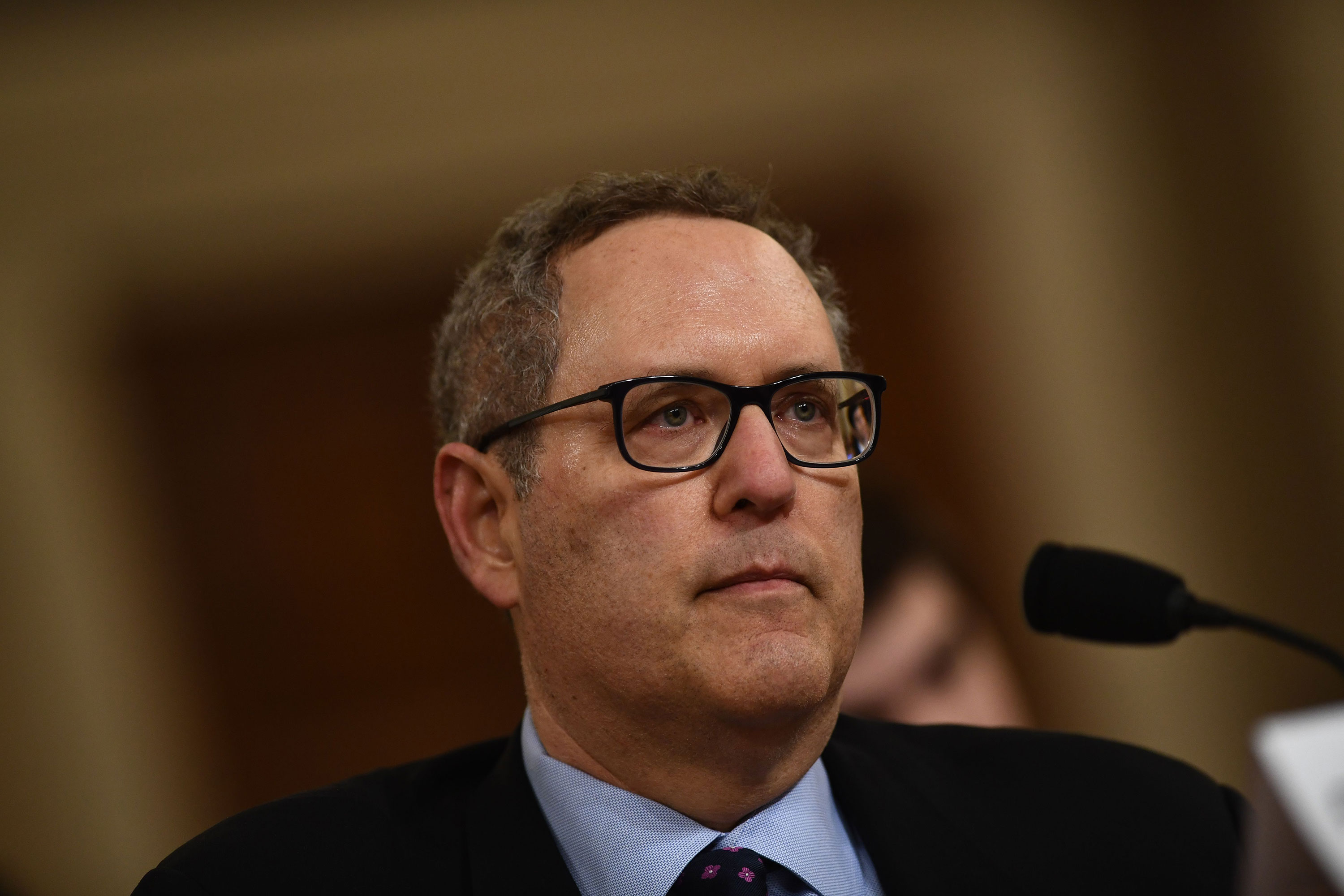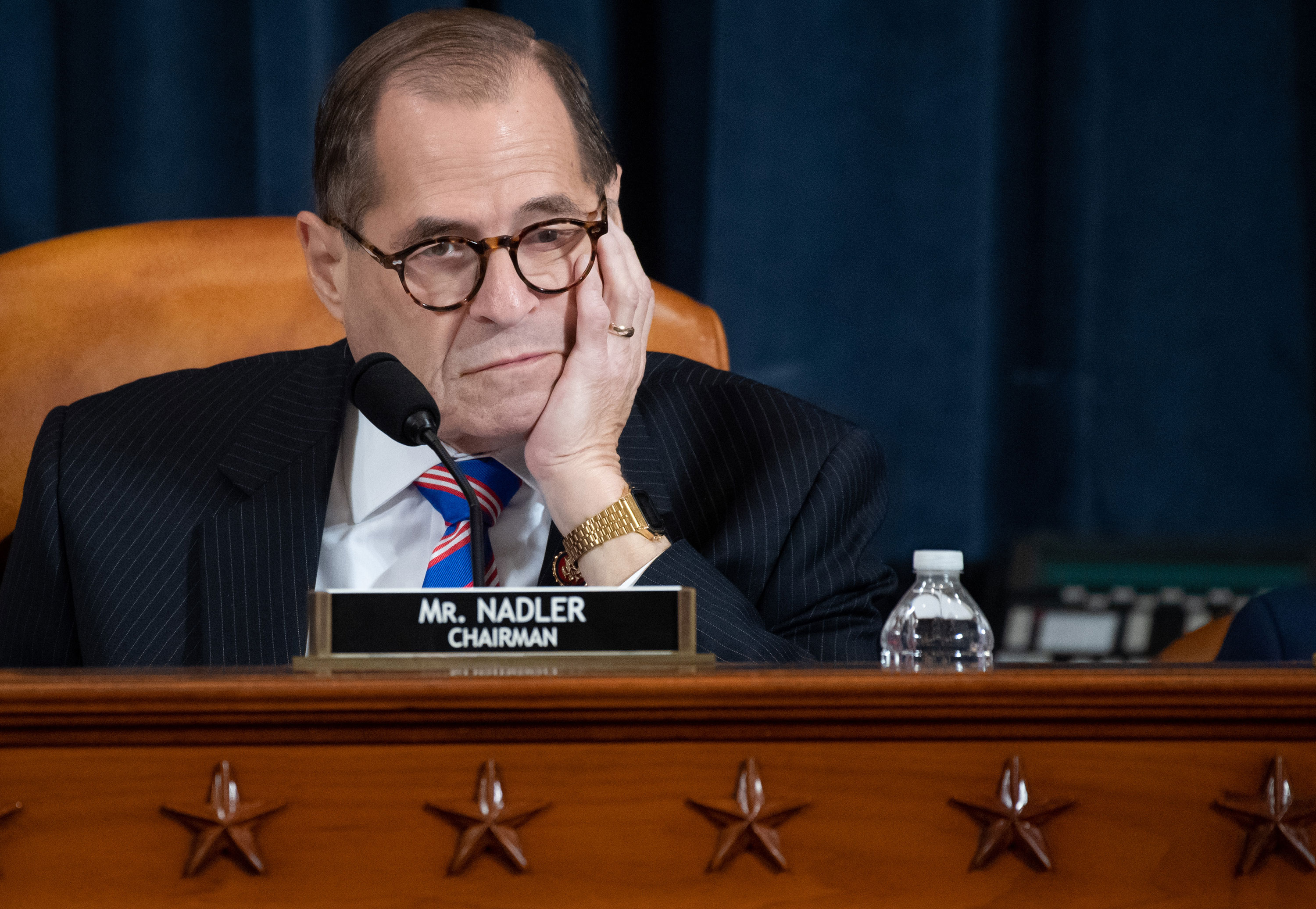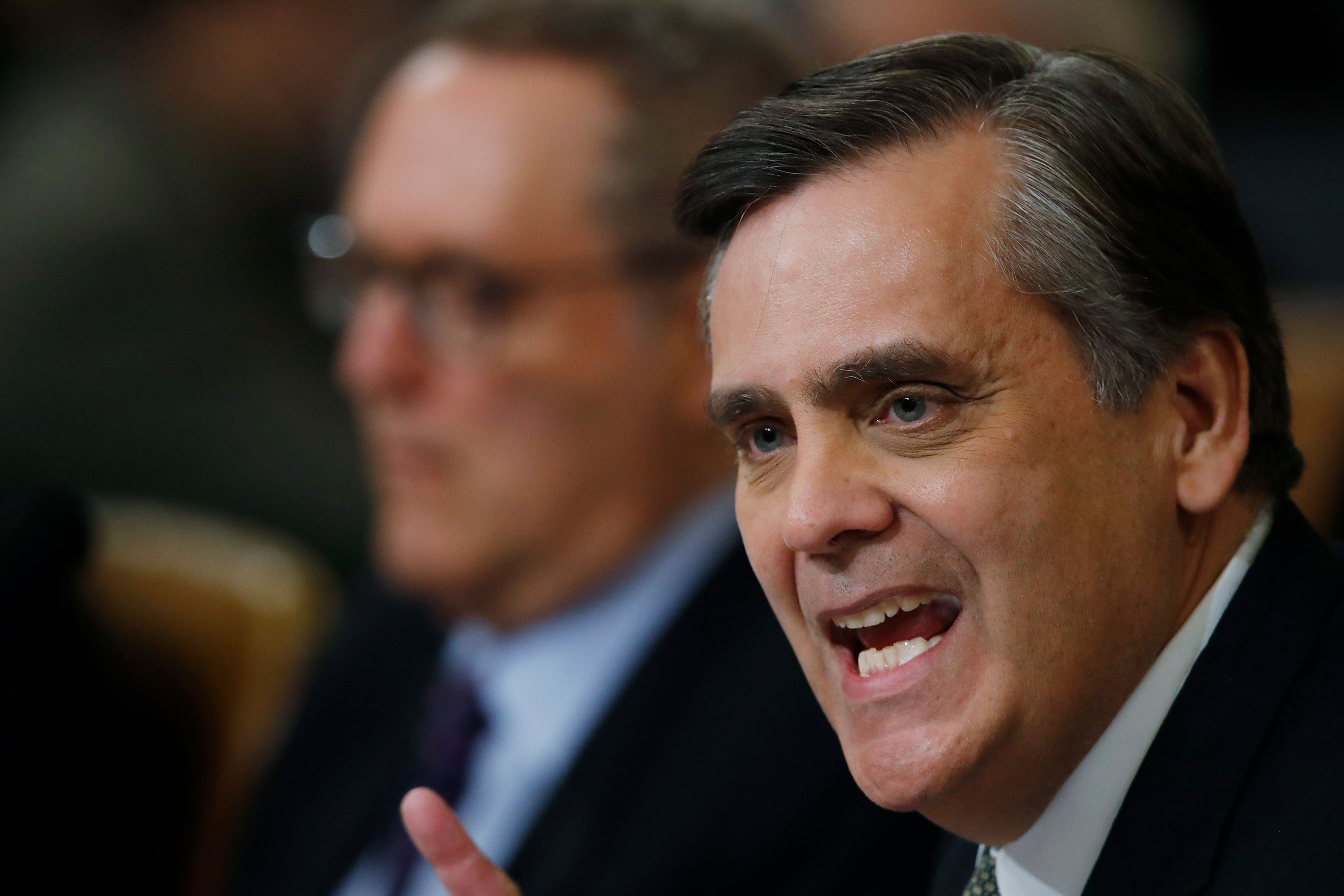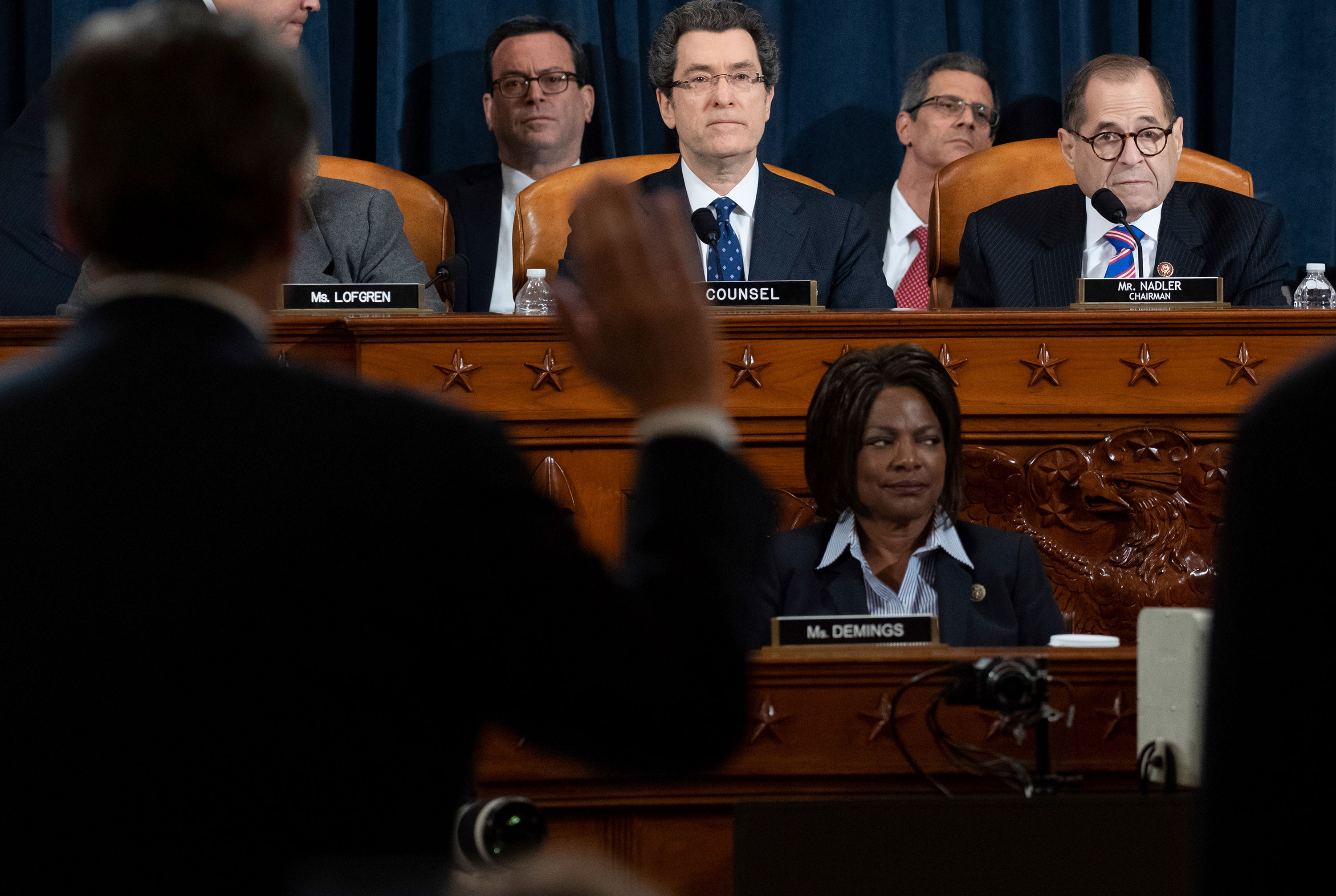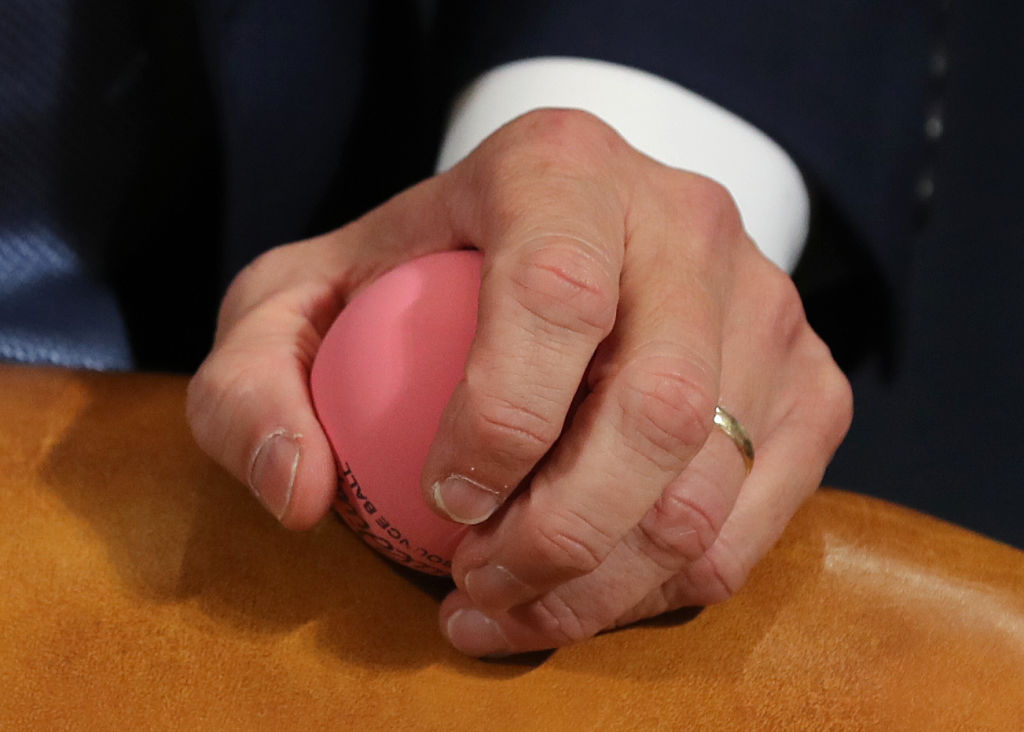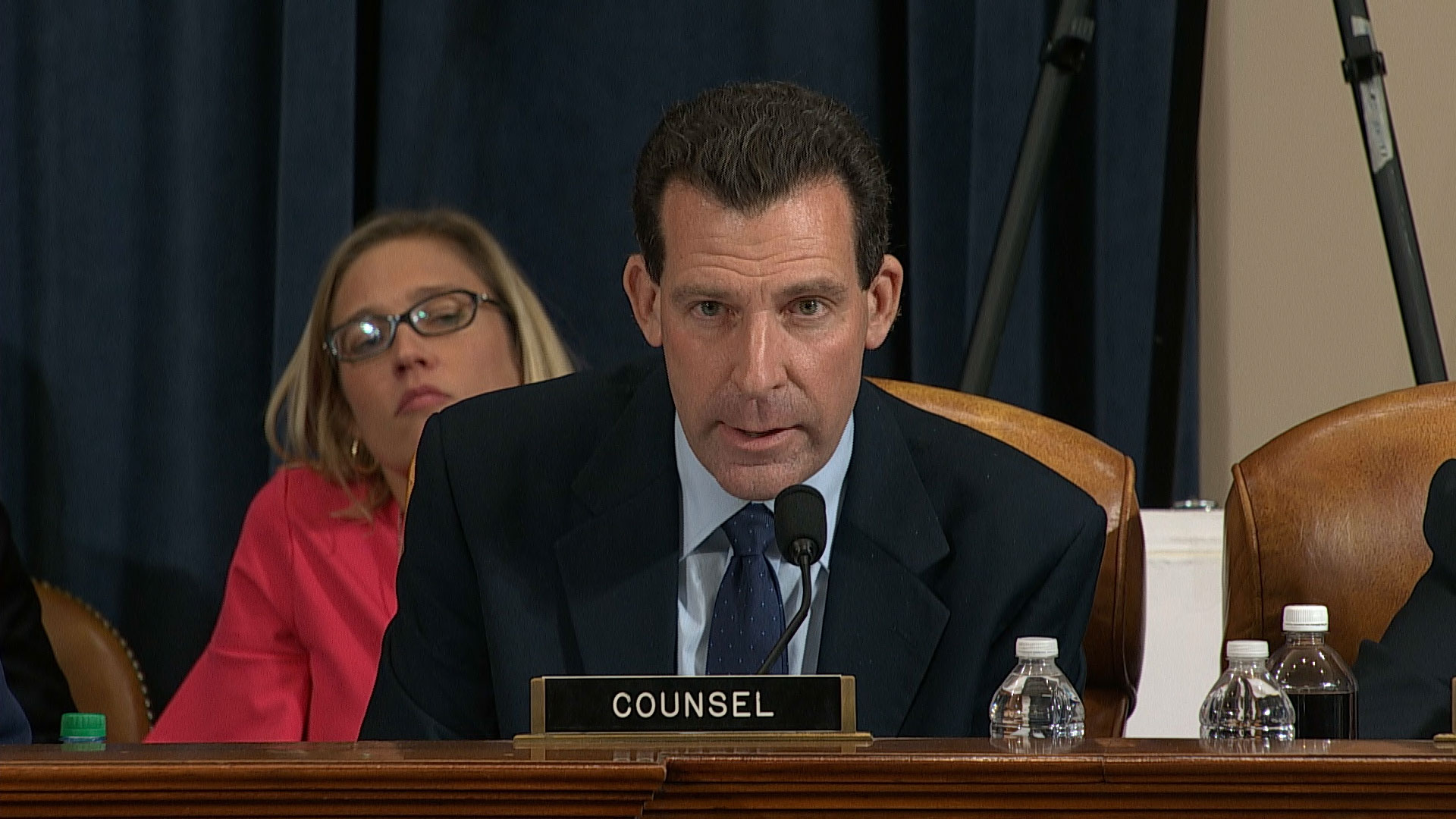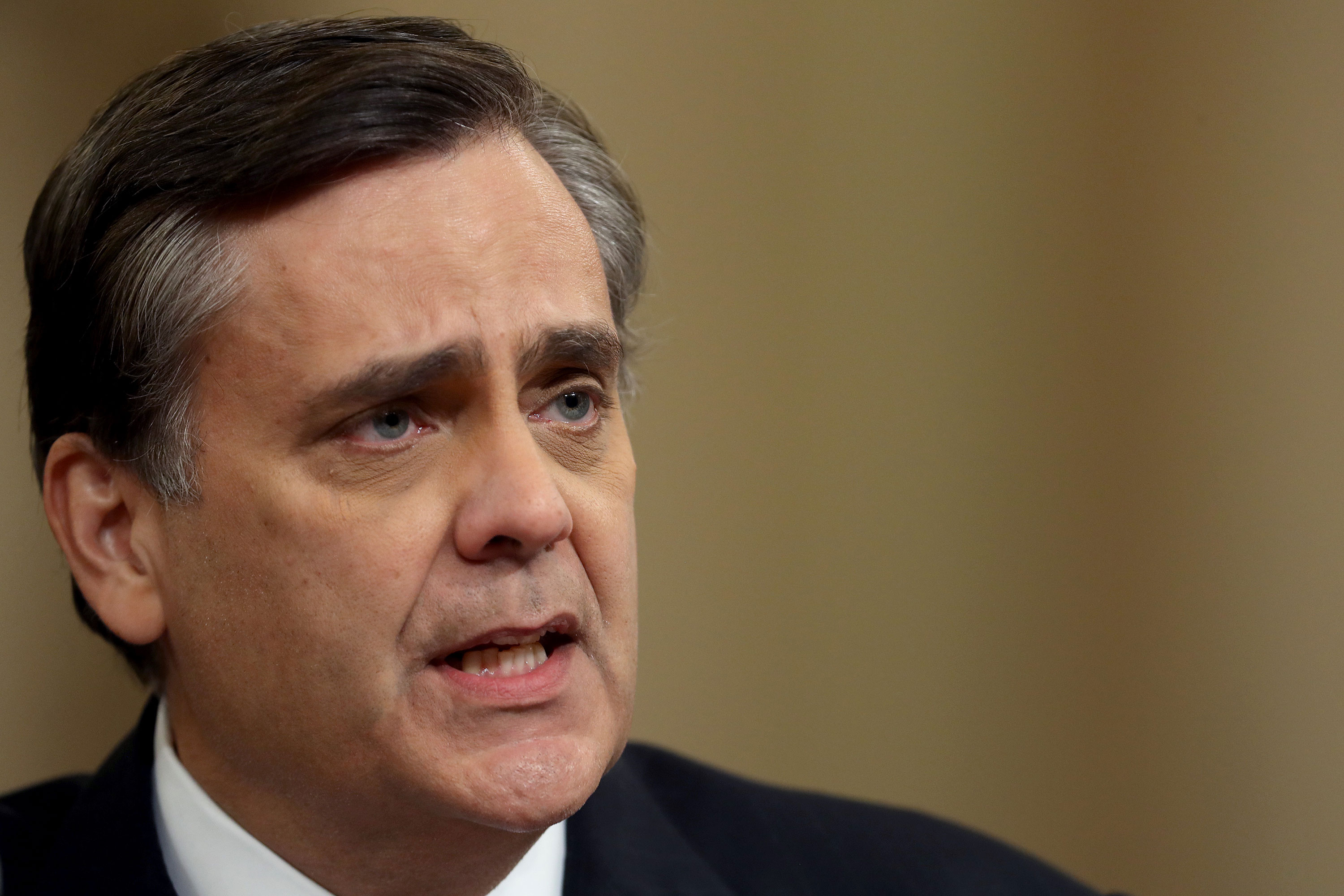Jonathan Turley, a professor at George Washington University Law School, said that George Washington's "powdered hair would catch on fire" if you told him the US Congress could impeach a president over conversations they had with a foreign leader.
Turley noted that Washington had a robust view on executive privilege.
"George Washington was the first guy to raise extreme executive privilege claims," Turley said. "He had a rather robust view of what a president could say."
He continued:
"If you were going to make a case to George Washington that you could impeach over a conversation he had with another head of state — I expect his hair, his powdered hair would catch on fire."
Watch:
